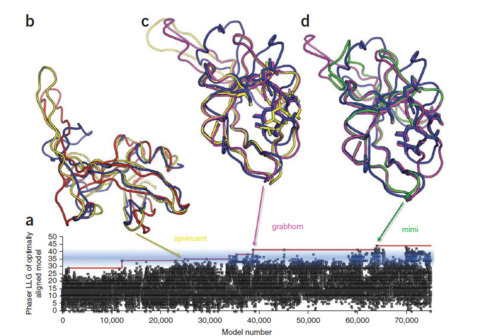Gamers advance AIDS research
University of Washington study says FoldIt players cracked protein structure dealing with virus multiplication that had eluded scientists for a decade.
Scientists have for years now been relying on gamers' PlayStation 3s and PCs to passively lend computational horsepower to protein-folding disease research. However, where raw horsepower isn't always sufficient, the science community has an equally powerful tool in the sheer ingenuity of gamers.

Researchers at the University of Washington announced on Sunday that through the online game FoldIt, players had deciphered an AIDS-related protein model. According to the study, which has been published in the Nature Structural & Molecular Biology journal, the protein structure had eluded scientists for over a decade but was solved by FoldIt players within three weeks.
The breakthrough pertained to the retroviral protease M-PMV, which is a simian-borne AIDS-causing virus and plays a role in how the disease multiplies. Researchers have been for years studying methods to deactivate the protein, but those efforts had been foiled due to their inability to crack the protein's structure through automated processes.
"The critical role of Foldit players in the solution of the M-PMV [retroviral protease] structure shows the power of online games to channel human intuition and three-dimensional pattern-matching skills to solve challenging scientific problems," the study noted. "Although much attention has recently been given to the potential of crowd sourcing and game playing, this is the first instance that we are aware of in which online gamers solved a longstanding scientific problem."
As for FoldIt itself, the game was designed by the University of Washington researchers and released to the public in 2008. After a series of tutorials, the game asks players to manipulate real-world protein structures, scoring points based on how well folded their work is deemed.
Got a news tip or want to contact us directly? Email news@gamespot.com
Join the conversation